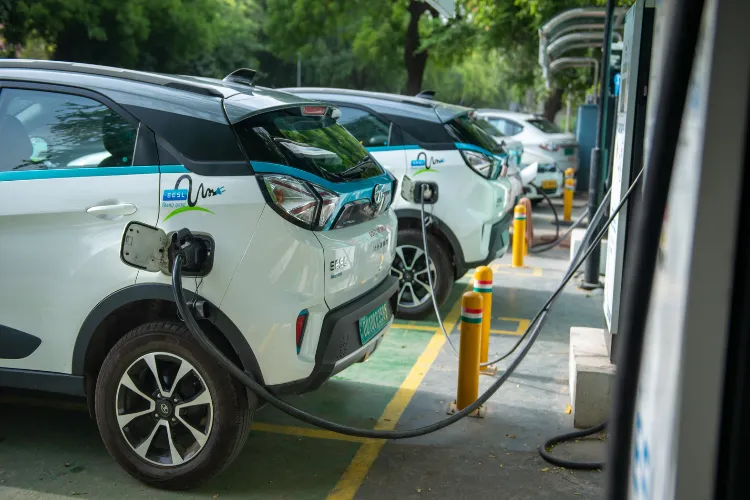
New Delhi
India's electric vehicle (EV) adoption remains in its early stages, lagging behind regional and global counterparts, according to a report by Moody's.
The report highlighted that the penetration of EVs in the country's passenger vehicle segment stands at just 2.5 per cent, significantly lower than the government's ambitious target of 30 per cent by 2030.
It said "India's electric vehicle (EV) adoption remains nascent compared to its regional and global counterparts, with EV penetration at a modest 2.5 per cent for passenger vehicles".
The report highlighted that the policy measures and incentives introduced in the Union Budget, such as exemptions on import duties for critical raw materials used in EV battery manufacturing--including cobalt, lithium, lead, zinc, and ion battery scrap--are expected to aid in the development of a domestic EV manufacturing ecosystem over time.
It also added that a key factor that could contribute to wider EV adoption is the expansion of domestic lithium-ion battery production. Increased manufacturing within the country will help lower production costs, making EVs more affordable for consumers.
At the same time, Indian zinc and lead miners will be impacted by the industry's practice of import parity pricing, requiring them to lower product prices to remain competitive.
Moody's said "The setting up of a state mining index will boost industry transparency, enabling better pricing discipline, a credit positive for miners".
Another significant policy development is the government's emphasis on recovering critical minerals from tailings--byproducts or leftover materials from mining activities. This initiative will not only help in reducing wastage but also address environmental concerns linked to mining. However, mining companies may face increased capital spending as they invest in tailings management.
India's passenger vehicle industry, which became the world's third-largest by unit sales in 2024, is projected to grow at around 4 per cent in fiscal 2025-26. This comes after a period of sluggish sales over the past year.
The recovery in demand, driven by economic growth and rising consumer spending, is expected to sustain momentum in the automotive sector, despite current challenges in EV adoption.
